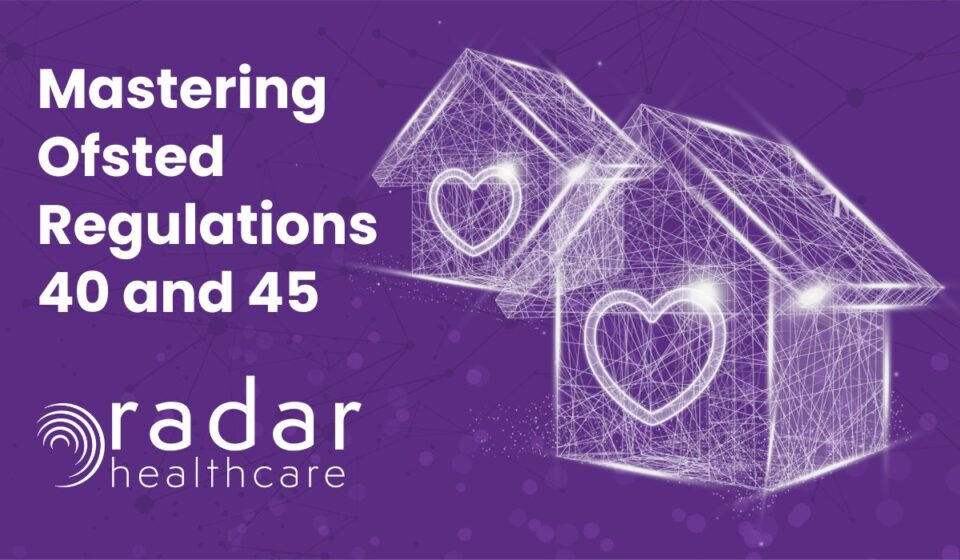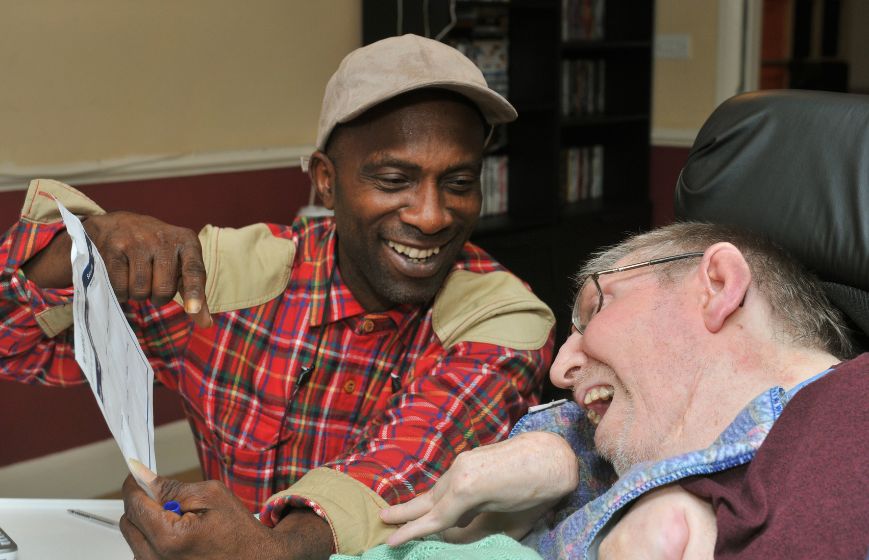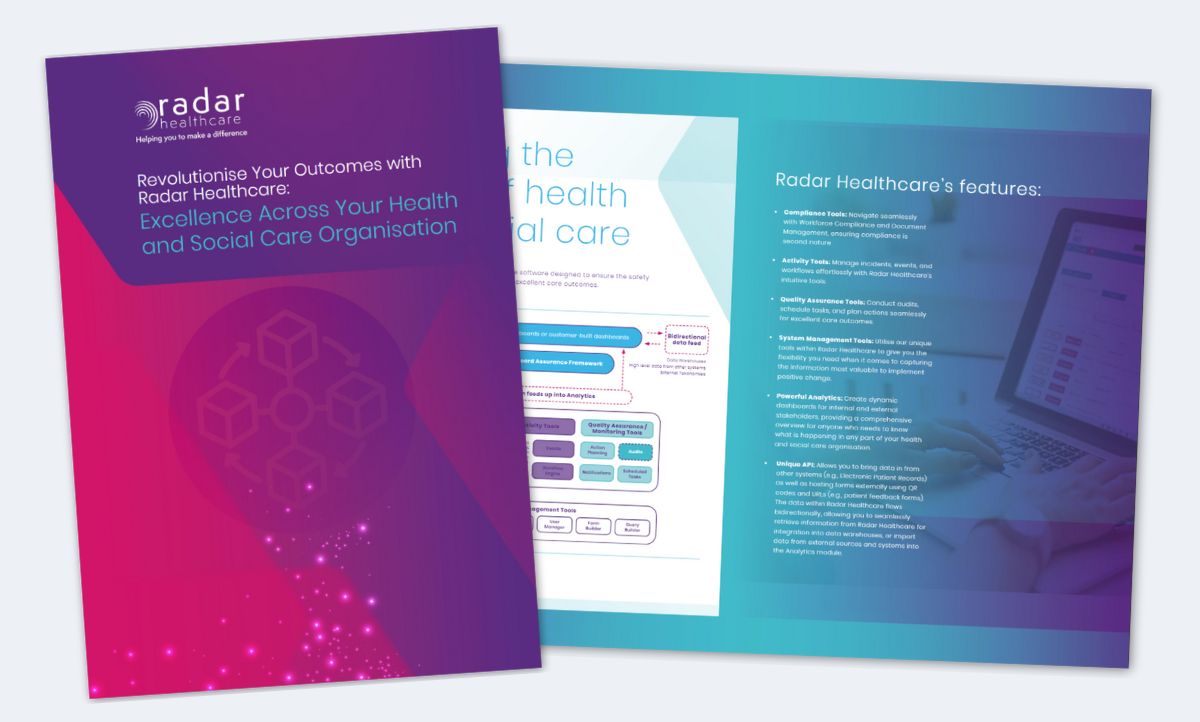Mastering Ofsted Regulations 40 and 45 within Children’s Residential Services with Radar Healthcare
Tags:
Understanding Ofsted Regulations 40 and 45 in Children’s Residential Services
Children’s Residential Services play a vital role in ensuring that vulnerable children receive safe, high-quality care. To maintain these standards, Ofsted has implemented key regulations that providers of children’s services must adhere to, including Regulation 40 and Regulation 45. Compliance with these rules not only ensures the safety and wellbeing of children but also helps homes avoid penalties and maintain a good standing with Ofsted.
In this blog, we’ll explore the ins and outs of Regulations 40 and 45 and how Radar Healthcare can help you simplify compliance, saving time and ensuring you meet regulatory requirements.

What is Regulation 40?
Regulation 40 mandates that providers of children’s residential services notify Ofsted of any significant incidents involving children in care. These incidents can include:
- Serious injuries
- Allegations of abuse
- Major behavioral incidents
- Situations requiring police involvement
The regulation aims to ensure transparency and immediate action to safeguard children in care.
Why is Regulation 40 Important?
Timely and accurate reporting under Regulation 40 is essential for ensuring children’s safety. It ensures that Ofsted is promptly made aware of significant incidents, allowing for appropriate intervention or inspection if needed. Failing to comply with this requirement could result in sanctions, negative inspection outcomes, or reputational damage.
Common Challenges
Providers often face challenges in complying with Regulation 40, such as:
- Time pressure: Gathering the right information and submitting it quickly can be difficult, especially when managing multiple incidents.
- Paperwork overload: Homes often rely on manual systems that increase the risk of errors or delayed submissions.
How Radar Healthcare Helps
Radar Healthcare can streamline Regulation 40 compliance by:
- Centralised incident tracking: Our system tracks all incidents in one place, making it easier to review and report them efficiently.
- Customisable workflows: Tailor incident reporting to meet regulations ensuring that the nominated individual is fully assured that procedure and policies have been followed.
"Working with Radar Healthcare is proving to be invaluable by bringing together all our incidents and events, audits, and continual improvements actions into one place. Empowering our workforce to be part of a proactive, caring, supportive environment, in which they can be proud to work."

What is Regulation 45?
Regulation 45 focuses on the quality of care provided in children’s residential services. It requires providers to submit regular reports evaluating their performance in areas like:
- Safeguarding
- Staffing
- Child development
- Health and education support
These reports must be submitted to Ofsted, ensuring homes are regularly reviewing and improving the care they provide.
Why is Regulation 45 Important?
By requiring providers to reflect on their practices, Regulation 45 fosters continuous improvement. Ofsted uses these reports to assess whether homes are meeting the required standards and providing the best possible care for children.
Challenges with Regulation 45
Many children’s homes struggle with compiling comprehensive and accurate Regulation 45 reports. Some common hurdles include:
- Data collection: Gathering all necessary data from different sources can be time-consuming and prone to error.
- Analysis: Interpreting data and drawing actionable insights for the report can be complex.
How Radar Healthcare Helps
Radar Healthcare simplifies the Regulation 45 reporting process by:
- Automating data collection: The platform collects data from various touchpoints, making the reporting process quicker and more reliable.
- Trend analysis: Radar Healthcare’s advanced analytics help you identify trends and insights, ensuring your reports not only comply but also drive quality improvement.
“Adaptable analytics enables you to make the data collected insightful. All workflows can use the same/similar functionality and therefore means staff do not need training in lots of different systems.”

Ensuring Compliance with Other Ofsted Regulations within Children’s Residential Services
Beyond Regulations 40 and 45, providers must comply with a wide range of Ofsted requirements. These include risk assessments, staff training, health and safety standards, and more.
Radar Healthcare provides a centralised compliance management system that allows providers to track and manage all regulatory requirements in one place. This comprehensive approach ensures that every aspect of care and compliance is covered, reducing the risk of oversight or non-compliance.
How Radar Healthcare’s Software Supports Children’s Residential Services
Radar Healthcare is designed to help providers navigate Ofsted regulations. Here’s how our platform makes compliance easier:
- Simplified reporting: Regulation 45 reports can be generated quickly, freeing up time for care staff to focus on providing the best care possible.
- Comprehensive risk management: Radar Healthcare tracks incidents, risks, and audits, providing a complete view of compliance status.
- Improved accountability: With real-time monitoring and reporting, you can ensure that every team member is accountable for meeting regulatory standards.
Conclusion
Mastering regulations, especially Ofsted’s Regulations 40 and 45, is critical for maintaining high standards of care and achieving positive inspection outcomes. Radar Healthcare’s innovative software can simplify these processes, ensuring compliance while allowing you to focus on what matters most – providing the best possible care for children.
Book a free demo FAQs
Regulation 40 requires providers of Children’s Residential Services to notify Ofsted of significant incidents involving children, such as injuries, abuse allegations, or police involvement.
Regulation 45 mandates providers to submit quality of care reports to Ofsted, evaluating their care standards and operational effectiveness.
These regulations ensure the safety and wellbeing of children in care by maintaining transparency, promoting quality improvements, and enabling Ofsted to monitor care standards effectively.
Non-compliance can lead to penalties, poor inspection outcomes, or even closure if standards are not met. Continuous compliance is crucial for safeguarding children and maintaining Ofsted approval.
The platform simplifies data collection and analysis, offering one central location for data that makes it easier to create quality of care reports.
No, Radar Healthcare helps with broader regulatory compliance, risk management, and quality assurance, ensuring providers meet all Ofsted standards.










